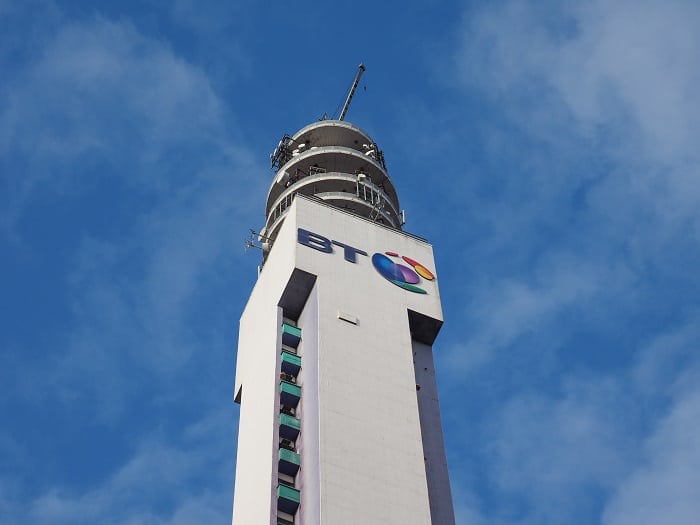Higher pension costs and big spending on sports rights dragged the FTSE 100 telecom firm’s profits down by 1% over the second quarter to £666m, while underlying revenue fell 1.5%.
Profits before tax for the six months to 30 September were 22% lower at £1.1bn.
Shares were up close to 3% (£2.67 per share) as trading commenced on Thursday morning, buoyed by the group’s decision to leave its progressive dividend policy and its full-year guidance unchanged.
Against a backdrop of collapsing bond yields, BT’s pension deficit has continued to balloon, despite the fact that it has contributed some £2.65bn to its pension scheme within the last six years. Since 2011, its deficit has surged from £1.8bn to £9.6bn, meaning its current liabilities are now twice its market cap.
However, researchers at Alliance Bernstein forecast that “this is as bad as it gets” for BT’s deficit and that “relief (is) around the corner”.
Senior research analyst and vice president of Bernstein research Dhananjay Mirchandani argued there are several upcoming changes, including life expectancy trends, that the market has failed to appreciate.
Since 2014, the average life expectancy has been declining, with a man turning 65 on 1 January 2017 now expected to live a further 22.2 years compared with 22.8 years in 2013.
Likewise, he said that a change in the discount rate, a metric calculated by looking at the interest rates on high quality corporate bonds, will help lighten the load for BT.
Overall, AB expects BT to shave £1.9bn off its deficit, taking it down to £7.2bn by the time of the next triennial, which accounts for inflation of 2.0%.
“BT’s triennial valuation is fast approaching, when it will agree an updated deficit recovery plan with the trustees,” said Mirchandani. “We foresee a sharp reduction in the deficit, dependent neither on rising interest rates nor on strongly performing investment markets. Revised longevity expectations are set to deliver a surprise one-off benefit.”
BT’s deficit reduction does depend on the success of its restructuring efforts, which The Share Centre’s Helal Miah said is still “a work in progress”.
“Despite offering an attractive dividend yield, close to 6%,” BT’s big spending on “sports rights” and 23% lower free cash flow and weak profits are cause for concern, he said.
“We continue to recommend BT as a ‘hold’ for investors willing to accept a medium level of risk.”
Shell
Like peer BP, which reported earlier in the week, Royal Dutch Shell benefited from higher crude oil prices and falling operational costs, delivering a 47% increase in third quarter profits of $4.1bn.
Profits in the first nine months of the year have reached $11.5bn, a 113% uptick from the $5.4bn it raked in the year prior.
Excluding working capital effects, cash flow from the oil giant’s operations was $10.1bn, compared with $7.8bn in the same period last year.
Shell’s third quarter dividend remained fixed at $0.47. Throughout the quarter, dividends distributed to shareholders totalled $4.0bn.
Its shares were up only marginally by 0.54% to £24.30 following the update.











